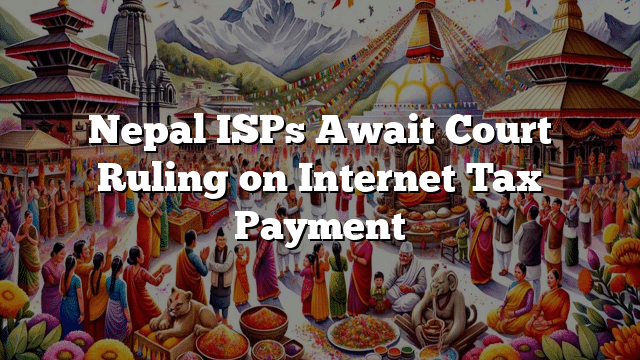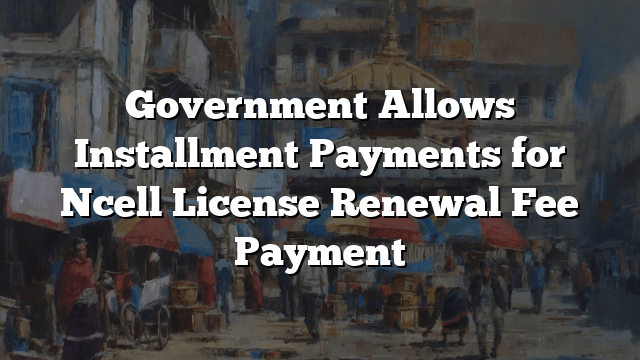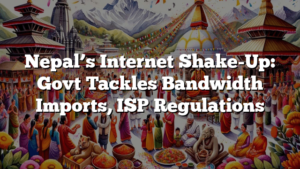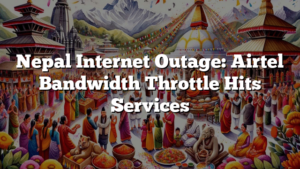
In a move that could potentially impact internet access and prices in Nepal, internet service providers (ISPs) are eagerly awaiting the full text of the Supreme Court’s ruling regarding the payment of taxes they collected from customers. This comes after the court scrapped a writ petition filed by Worldlink Communications, ordering ISPs to pay the government taxes they had raised from the public.
The ongoing legal battle revolves around nearly Rs4 billion (approximately $31 million) in rural telecommunications development fees and royalty charges on maintenance that ISPs collected from customers since the fiscal year 2017-18 but did not transfer to the government. The ISPs had argued that a former parliamentary Public Accounts Committee had ordered a waiver of these fees.
One of the leading ISPs in Nepal, Vianet, has expressed its intention to comply with the Supreme Court’s verdict. “We will obey the Supreme Court’s verdict. As the writ petition has been scrapped, we are discussing with the Nepal Telecommunications Authority on the amount that ISPs owe to the government and the payment modality,” said Binay Bohra, the owner of Vianet.
The dispute between ISPs and the government over tax payments has already caused service disruptions for thousands of Nepali internet users. On May 2, Airtel, a leading Indian telecom provider, cut upstream services to Nepal for around five hours after the payment dispute remained unresolved for months. Airtel agreed to restore the service after the Nepal Telecommunications Authority promised to address the issue responsibly.
The Ministry of Communication and Information Technology has repeatedly stated that unless ISPs pay the due taxes, it will not recommend the Nepal Rastra Bank (the central bank) to make foreign exchange available for the service providers to forward payments to upstream service providers.
The legal battle dates back to a few years ago when the erstwhile parliamentary Public Accounts Committee ordered the government to exempt ISPs from taxes on non-telecom components like web services, co-location, hosted services, disaster recovery, managed services, data centers, and cloud services. However, the auditor general later pointed out that such fees raised from the public should not be waived, leading to the government’s demand for ISPs to clear their dues.
With Nepal’s internet user base reaching 10.6 million through 20 ISPs, including the state-owned Nepal Telecom, the resolution of this legal battle could have significant implications for internet access, affordability, and the overall digital landscape in the country.
Related:



